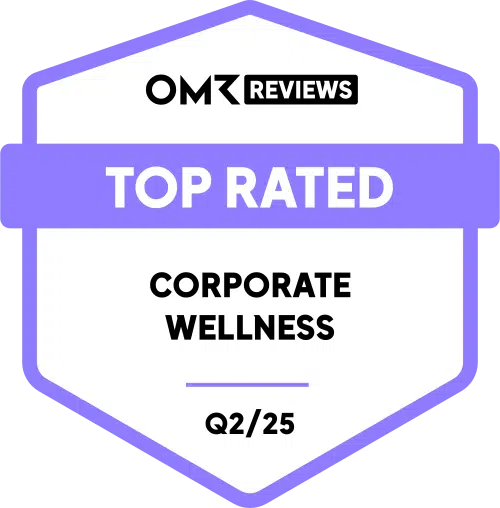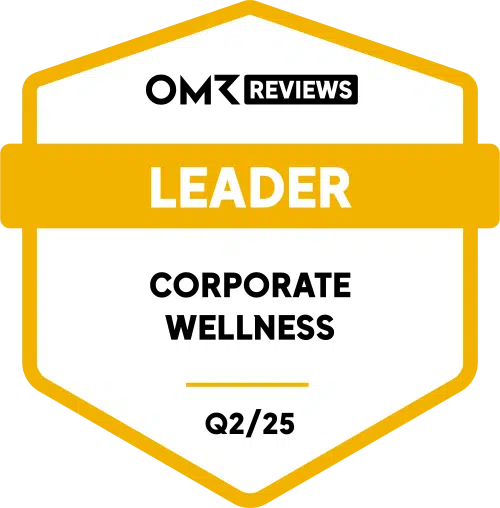Building a Healthier Workplace Together
Luxemburger Deklaration
16 Min. Lesezeit I Zur Lexikon-Übersicht
Die Luxemburger Deklaration, developed during the World Health Organization’s (WHO) first European Conference on Health Promotion in 1997, marked a turning point in health promotion strategies across Europe. By addressing health as a multifaceted and cross-sectoral issue, it underscored the importance of collaboration and equity in fostering healthier societies. For organizations today, the declaration provides a robust framework to create workplaces that promote employee well-being and engagement, driving both individual and organizational success.

Key Principles of the Luxembourg Declaration
Health as a Multifaceted Concept
The declaration recognizes health as more than just the absence of illness. It is influenced by a wide range of social, economic, and environmental factors. For workplaces, this holistic approach calls for addressing physical, mental, and emotional well-being together. For example, fostering employee well-being can include ergonomic adjustments, mental health resources, and initiatives that build stronger connections within teams. Similarly, promoting employee engagement ensures employees feel valued and motivated, leading to higher productivity and satisfaction.
Equity in Health Promotion
Health initiatives should aim to reduce disparities and provide equal opportunities for all employees to thrive. Marginalized groups often face unique challenges, which makes inclusive workplace practices essential. This could involve implementing diversity management strategies or addressing the root causes of Absentismus through targeted health and wellness programs. Equity in the workplace ensures that everyone has access to the resources they need to succeed.
Participation and Empowerment
Empowerment and active participation are at the heart of effective health promotion. Engaging employees through Mitarbeiterbefragungen und ideas management not only helps to identify their needs but also builds a sense of ownership over workplace initiatives. Employees who feel involved in shaping their work environment are more likely to support and benefit from health programs.
Why the Luxembourg Declaration Matters in Modern Workplaces
Today’s workplaces face unique challenges, from hybrid work models to increasing levels of stress and burnout. The principles of the Luxemburger Deklaration offer actionable solutions to these issues:
Reducing Absenteeism and Presenteeism: Employees who struggle with health issues, whether physical or mental, may experience reduced productivity. Initiatives such as ergonomic adjustments and mental health support help mitigate these risks, leading to fewer sick days and greater focus at work. Learn more about reducing Absentismus and tackling Präsentismus effectively.
Strengthening Employee Retention: With talent retention being a major challenge, organizations must focus on improving workplace satisfaction. Offering comprehensive health programs and promoting Mitarbeiterbindung not only boosts loyalty but also makes the organization more attractive to prospective talent.
Building a Culture of Appreciation: Trust-based leadership and programs that recognize individual contributions help create a culture of Wertschätzung. This fosters psychological safety and enhances team cohesion, resulting in a more positive work environment.
Applying the Luxembourg Declaration in Your Organization
Health Promotion as Part of Corporate Social Responsibility (CSR)
Integrating health promotion into a company’s CSR initiatives sends a clear message: the organization values the well-being of its employees and is committed to being a socially responsible employer. By prioritizing health in the workplace, businesses can address employees’ physical, mental, and emotional needs while demonstrating ethical leadership. This not only enhances the quality of life for employees but also aligns the organization with the growing demand for sustainable and fair business practices. CSR efforts that include health promotion help attract socially conscious clients, partners, and employees, creating a positive ripple effect that strengthens the organization’s reputation and market position.
Fostering Resilience and Adaptability
In today’s fast-changing work environment, resilience has become a critical skill for both employees and organizations. Building resilience allows teams to navigate crises effectively, adapt to change, and maintain high performance under pressure. Companies can foster this adaptability by offering programs that focus on mental health, stress management, and emotional intelligence. Resilience training not only equips employees with tools to cope with challenges but also creates a workplace culture where individuals feel supported in their growth. Over time, these efforts lead to improved productivity, greater job satisfaction, and a more robust organizational foundation.
Embracing Modern Work Models
The rise of flexible work arrangements, such as hybrid working and work-life blending, has transformed traditional workplace dynamics. While these models provide employees with the freedom to balance personal and professional responsibilities, they can also introduce challenges like isolation, blurred boundaries, and increased stress. To address these risks, organizations should embed health promotion strategies into modern work frameworks. This can include providing ergonomic home office solutions, facilitating virtual wellness programs, and encouraging regular check-ins to monitor employee well-being. By proactively supporting health in flexible work environments, companies can ensure that these arrangements enhance, rather than hinder, employee satisfaction and performance.
These approaches demonstrate how the principles of the Luxembourg Declaration can be translated into actionable strategies that create healthier, more resilient, and engaged workplaces.
Zusammenfassung
Die Luxemburger Deklaration provides a timeless framework for creating environments where health promotion is a shared priority. By addressing the social determinants of health, fostering equity, and empowering employees, organizations can create workplaces that inspire and support their teams. Together, let’s build a healthier and more resilient workforce.
FAQ
The Luxembourg Declaration is a framework developed during the WHO’s first European Conference on Health Promotion in 1997. It emphasizes health as a holistic concept influenced by physical, mental, and social factors, aiming to create healthier societies and workplaces.
It provides a foundation for addressing employee well-being comprehensively. By focusing on equity, empowerment, and holistic health, organizations can reduce absenteeism, increase engagement, and improve employee retention.
Organizations that adopt its principles can expect:
- Reduced absenteeism and presenteeism.
- Improved employee satisfaction and engagement.
- Enhanced organizational reputation as a responsible employer.
Equity is a core principle, ensuring all employees have equal access to resources and opportunities for health promotion. This includes supporting marginalized groups, addressing diversity needs, and tailoring initiatives to specific employee challenges.
Yes! By creating a supportive environment focused on well-being, organizations foster employee loyalty and attract top talent.
Quellen
Deklaration, L. (1997). Die Luxemburger Deklaration zur betrieblichen Gesundheitsförderung in der Europäischen Union. Europäisches Netzwerk für betriebliche Gesundheitsförderung, 27, 2




